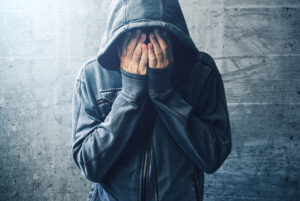Librium is a benzodiazepine that is frequently prescribed for the treatment of anxiety-related conditions and the development of anxiety in alcohol withdrawal. However, its effectiveness can make it a drug of abuse itself, and patients who become dependent on Librium to function will struggle if they don’t get enough of it. This overview will provide information on Librium withdrawal, including side effects, timelines, and recommendations on how to manage the process.
Withdrawal
When this kind of use goes on for a while, it can be difficult and even dangerous to simply stop consumption. The patient’s brain and central nervous system have gotten so used to the constant GABA neurotransmitter production, that going back to the pre-Librium state becomes almost impossible. Instead, patients feel a range of distressing and unpleasant physical and psychological effects, as their body struggles to cope without the presence of the drug. This process is known as withdrawal.
How long withdrawal takes depends on many different factors, including how long the person has been taking Librium and at what dosage. Other factors include whether there were other drugs present in the system during the Librium consumption and during the withdrawal process itself, the medical and mental health state of the individual, genetic factors, age, and how the medication was being taken (orally, snorted, or injected).
For example, crushing Librium pills and snorting the powder (or dissolving the powder in water and injecting the solution into the veins) transmits the chemical compounds directly into the bloodstream, giving users an instant sedating effect but also a more powerful experience, which can prolong withdrawal. On the other hand, ingesting a pill (as commonly prescribed) requires processing through the digestive tract, which creates a less intense experience, and this will likely slow down the onset of withdrawal symptoms.
“Since Librium has a relatively long half-life, this can influence how long it takes for the drug to leave the bloodstream. As a long-acting benzodiazepine, it might take a few days from the time of last consumption for symptoms to start. People who take Librium for months at a time, and in high doses, will likely experience a greater spectrum of long-lasting withdrawal symptoms compared to those who take smaller doses for a reduced period.”
Since Librium is an anxiolytic that is used in the treatment of anxiety, patients might experience an increase in their anxiety symptoms as the withdrawal process takes effect. This drives the desire for more Librium, and if the patient can get it, the result is that dependence on (and abuse of) the drug is deepened.
3 Phases of Librium Withdrawal
There are three main phases to withdrawing from Librium: early withdrawal, acute withdrawal, and protracted withdrawal. In early withdrawal, patients typically experience a return of their anxiety symptoms due to the absence of the benzodiazepine to keep GABA levels steady. To overcome this, patients undergoing medical detoxification (withdrawal under medical supervision) will often be put through a tapered withdrawal, where they are gradually weaned off the drug. Early withdrawal commences typically within a few days of the last dose, and it can last for two or three days.
Past the three-day point, patients will likely experience acute withdrawal, which is where most of the withdrawal symptoms take place. In addition to anxiety, individuals may experience insomnia, muscle cramping, nausea and vomiting, diarrhea, agitation and mood swings, and a deep craving for more Librium. In medical detox, doctors will typically give the patient other drugs to soothe these symptoms: anticonvulsants for muscle pain, anti-anxiety drugs for psychological symptoms, and supplements for the nutrients lost through vomiting and diarrhea. These drugs have to be administered very carefully and precisely because the patient’s body is still in a very vulnerable state.
 At the most end of the acute withdrawal, spectrum is the possibility of seizures and suicidal thoughts and actions. These will typically present themselves only in the case of chronic and long-term Librium use or if the dependence took place in the presence of other drugs or alcohol. Patients must receive therapy and support during this time to help them unpack their complex emotions without the necessity of Librium. To guard against seizures, a patient might be given Klonopin (clonazepam). Klonopin is another benzodiazepine that works in much the same way Librium does, so it must be administered with care and precision.
At the most end of the acute withdrawal, spectrum is the possibility of seizures and suicidal thoughts and actions. These will typically present themselves only in the case of chronic and long-term Librium use or if the dependence took place in the presence of other drugs or alcohol. Patients must receive therapy and support during this time to help them unpack their complex emotions without the necessity of Librium. To guard against seizures, a patient might be given Klonopin (clonazepam). Klonopin is another benzodiazepine that works in much the same way Librium does, so it must be administered with care and precision.
Acute withdrawal can last for a few weeks, but a months-long timeframe is not unheard of. Counseling and ongoing therapy will greatly assist patients who continue to struggle with the psychological fallout from the discontinuation of Librium.
What Does Librium DO?
Librium is the trade name of the generic drug chlordiazepoxide, a benzodiazepine and a sedative tranquilizer that works by increasing the production of a particular neurotransmitter in the brain, the GABA neurotransmitter.
People who have anxiety-related conditions or medical problems that exacerbate the development of anxiety can’t produce enough GABA (gamma-Aminobutyric acid) to control the electrical activity in their brains and nervous system.
It is this uncontrolled electrical activity that leads to what we could recognize as anxiety and panic disorders, where the patient struggles to maintain their composure in the face of stressful situations and cannot moderate their responses to the stress.
Librium and other benzodiazepines chemically prod the brain into producing and releasing enough GABA to tame the electrical activity across the central nervous system. This helps patients manage their anxiety better and control their behavior much more than they could do without their medication. For patients who have chronic difficulty with anxiety and all the resultant lifestyle disruptions, experiencing the effects of a benzodiazepine can feel like a blessing.
How is Librium Abused?
As a benzodiazepine, there is the potential that Librium can become a habit-forming drug. Even if the initial Librium consumption is done according to prescription standards, such as for a legitimate medical purpose, it is still possible that the continued use of Librium could cross the line into abuse or dependence. Some patients do this by increasing how much Librium they take to better feel the anti-anxiety effects. Some eschew other forms of anxiety control, coming to rely solely on Librium to moderate their stress and then to simply feel normal and settled.
In other cases, people abuse Librium recreationally, seeking the tranquility of the GABA boost even if they have no anxiety issues. Some people combine it with other substances to enhance their respective effects.
Additionally, people with underlying mental health conditions might be compelled to consume more Librium than their doctor has prescribed. This has led to many cases of people being hospitalized for benzodiazepine abuse, whether because their prescribed medication use got out of control or because they became addicted via their recreational use.
 Whatever its origins, any form of Librium abuse, especially abuse carried out over a long period, drastically increases the chance of a person becoming addicted to the drug. This has two immediate effects:
Whatever its origins, any form of Librium abuse, especially abuse carried out over a long period, drastically increases the chance of a person becoming addicted to the drug. This has two immediate effects:
- The patient develops a tolerance for Librium, meaning that increasingly higher amounts of the medication are needed to feel the standard effects.
- Many different systems in the body get so used to the effects of the drug that discontinuing use becomes all but impossible.
Furthermore, Librium has a relatively long half-life (how long it takes for 50 percent of the consumed amount to be broken down in the body). Librium’s half-life is between 10 hours and 30 hours, making it a relatively long-acting benzodiazepine. It can take up to several hours for a patient to feel the effects of the medication. Patients who are impatient or desperate for relief from their anxiety might take more Librium than they need under the belief that this will bring about faster control of their stress.
It might, but this will have the added effect of making them unhealthily dependent on the drug for stress management.
Living Without Librium
There is no fixed timeline for Librium withdrawal – the factors influencing the rate of the process are too myriad – but the intervention of medical and mental health professionals can go a long way in reducing the duration and intensity of the symptoms that occur. Librium withdrawal effects are not lethal, but in cases of chronic use or if the patient is in poor health, they can cause medical complications that might be quite serious. For example, diarrhea and vomiting might lead to the development of malnutrition and dehydration, which can be lethal.
As such, Librium withdrawal should not be attempted alone or without medical supervision at a treatment facility or hospital. This oversight can be instrumental in the proper processing of the drug from the body and brain. Regular therapeutic work, and family and social support, can form the foundation of productive and long-lasting recovery.

